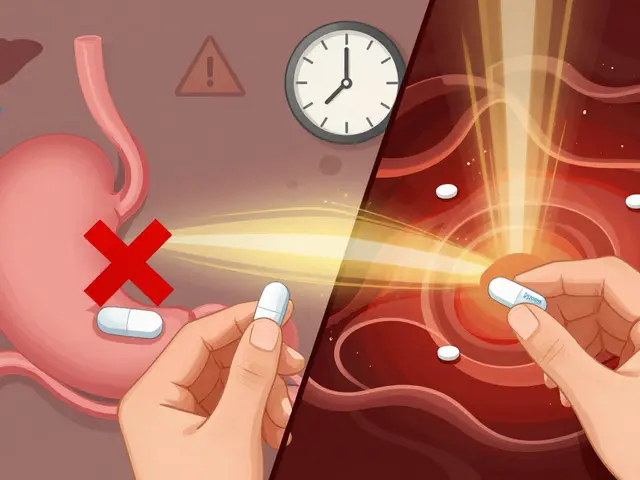Thyroid Medication: Practical Guide to Treatment, Dosing, and Safe Buying
Thyroid medicine can feel confusing, but a few simple rules keep it working well. This guide covers the main drugs, how to take them, what to watch for, and safe ways to buy online. No jargon—just clear steps you can use at home or when talking with your doctor or pharmacist.
Common thyroid medications
Levothyroxine is the most common choice. It replaces T4 and is sold as Synthroid, Levoxyl and many generics. Doses vary a lot: some people take 25 micrograms, others 100–150 mcg daily. Liothyronine (Cytomel) is T3 and is used less often or for short-term symptom control. Desiccated thyroid (Armour) is an animal-derived option some patients prefer, but it has less predictable hormone amounts. Your clinician will pick a drug based on labs, symptoms, age, and heart health.
If you’re older or have heart disease, doctors start with a low dose and raise it slowly to avoid strain on the heart. Pregnant people usually need a higher dose early in pregnancy; tell your provider if you get pregnant. Never change dose on your own—small adjustments matter.
How to take it, interactions, and monitoring
Take levothyroxine on an empty stomach—30 to 60 minutes before breakfast, or at bedtime at least three hours after eating. Calcium, iron, and antacids block absorption; separate those by at least four hours. If you switch brands or pharmacies, keep an eye on symptoms and get labs checked because formulations can vary.
Check TSH about six to eight weeks after starting or changing dose. TSH tells you whether the dose is right. Signs your dose is too high include heart racing, nervousness, trouble sleeping, heat intolerance, and weight loss. Signs of too low a dose include tiredness, weight gain, dry skin, and constipation. If you notice these, call your clinician rather than guessing.
Medications that interact include estrogen therapy, some antidepressants, amiodarone, certain seizure medicines, and supplements. Warfarin effect can change when thyroid dose is adjusted, so your blood thinner needs closer monitoring after any change.
Storage is simple: keep pills in the original bottle at room temperature, dry and away from sunlight. If you miss a dose, take it as soon as you remember the same day; don’t double the next day. Keep a list of medicines and lab results in your phone—it makes clinic visits faster and safer.
Thinking of buying online? Use pharmacies that require a prescription, show a physical address and pharmacist contact, and have clear licensing info. Avoid sites that sell prescription drugs without a prescription or offer extremely low prices with no contact details. If a mail-order pharmacy looks legit but unfamiliar, check for reviews and whether it’s licensed in your country.
Small habits make a big difference: consistent timing, spacing supplements, and lab follow-ups keep your treatment stable. Bring any symptoms, pregnancy plans, or major medication changes to your clinician so your thyroid care stays on track.

Exploring Effective Alternatives to Synthroid for Thyroid Balance
Synthroid is a commonly prescribed medication for hypothyroidism, but it might not work for everyone. This article explores nine viable alternatives for thyroid management, each with its unique advantages and disadvantages. From natural desiccated options like Armour Thyroid to synthetic choices such as Cytomel, readers can find information helpful for navigating their treatment options. It also includes insights into various FDA-approved levothyroxine variations and naturals that provide both T4 and T3 hormones.
View More




